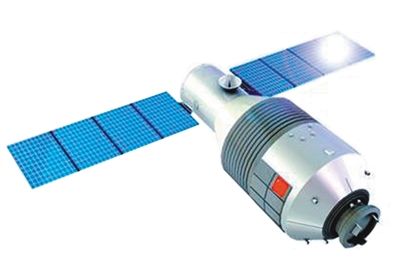News Center
Tiangong-2 another significant step for building China's space station: U.S. experts
September 18, 2016
Source: Xinhua 2016-09-16 01:04:54

WASHINGTON, Sept. 15 (Xinhua) -- China on Thursday took "another significant step" towards building a manned space station around 2020 with the successful launch of its second experimental space laboratory, U.S. space experts said.
"The launch of Tiangong-2 demonstrates China remains committed to human spaceflight and to the goal of building a space station in low earth orbit," Gregory Kulacki, senior analyst and China project manager at the U.S.-based Union of Concerned Scientists' Global Security Program, told Xinhua.
"The launch ... will help the Chinese space program further develop the technological capability to achieve that goal in the not too distant future," Kulacki said.
Former NASA astronaut Leroy Chiao, the first Chinese-American to be commander of the International Space Station, hailed Tiangong-2 as "another significant step" for China's human spaceflight program.
"I understand that Tiangong-2 is more advanced than Tiangong-1, and that the next crew (to be launched in October) will stay there for a month," said Chiao, also the first Chinese-American to perform a spacewalk.
"I anticipate that Tiangong-2 will test more advanced life support systems, as well as cargo ship docking and station refueling. This will set the stage for the launch of China's core space station module in 2018."
Chiao, who has visited China's space centers over the years, was impressed with the advances China has made, and revealed he has "good relationships" with several of the Chinese national astronauts.
"China is moving in a very deliberate and orderly fashion to advance their space capability," he said. "I think the technology is good, and they are moving to get more operational experience through Tiangong-2, before the beginning of space station construction."
Both Kulacki and Chiao highlighted the importance of international cooperation in space exploration.
"It is encouraging that China intends to solicit international participation in its space station project," Kulacki said.
"And my hope is that the United States and China will, at an appropriate time in the future, find a way to cooperate in the peaceful exploration of space instead of competing to turn it into a battlefield."
What Kulacki was referring to was a prohibition introduced in 2011 by the U.S. Congress that banned NASA, the country's space agency, from almost all direct interactions with China.
China was also barred from participating in the International Space Station, mainly due to objections from the United States.
Chiao stressed that international cooperation on human spaceflight is a common point of interest that helps improve overall relationships.
"The International Space Station is a great example of that," he said. "Many nations came together to build the amazing facility, and we are working together to further science. This helps to improve overall relations between the member countries."
